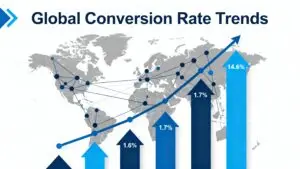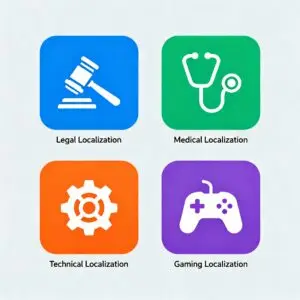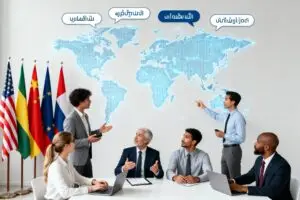Document translation converts written text from one language into another while preserving the original meaning, tone, and intent. Unlike casual or conversational translation, document translation demands precision and clarity. These texts often hold significant legal, business, medical, or cultural value. This service ensures information reaches audiences who speak different languages accurately. It maintains the document’s integrity and purpose.
The Importance of Document Translation
In our increasingly globalized world, organizations and individuals rely on document translation. Legal contracts, medical reports, marketing materials, and technical manuals all require translation. This allows effective communication across language barriers. International business, immigration, healthcare, and legal systems especially need accurate translation. Misunderstanding or misinterpretation could lead to costly errors or legal disputes.
For example, legal translation requires specialized knowledge of legal terminology and jurisdictional nuances. Poor translation of legal documents can seriously undermine contractual agreements or compliance. This highlights why professional legal translation services remain essential. You can learn more about the specifics and importance of this service in our dedicated article on Legal Translation Services.
How Document Translation Works
Document translation involves more than simply replacing words in one language with their counterparts in another. Skilled translators analyze the entire text. They consider context, cultural references, idiomatic expressions, and the document’s intended purpose. This often requires subject matter experts who understand industry-specific terminology. Fields like law, medicine, or technology especially benefit from specialized knowledge.
Professional translators frequently specialize in particular language pairs and industries. For instance, translating from African languages such as Runyankole, Luhya, or Maasai into English requires language fluency and cultural understanding. Translators must convey nuances correctly. Applied Lingo, for example, provides expert translation services in many African languages including Runyankole, Luhya, and Maasai.
Additionally, the process often includes an initial translation followed by a review or editing phase. This ensures accuracy and fluidity. Documents that will become legally binding or publicly published especially need this careful review.
Where Document Translation Is Most Commonly Used
Various sectors widely use document translation services. In business, companies rely on document translation for contracts, product information, user manuals, and marketing content. This helps them reach global customers. Within legal frameworks, translation proves critical for immigration cases, international litigation, and multinational agreements.
Healthcare institutions also depend heavily on document translation. They need to accurately communicate patient histories, consent forms, and treatment plans to speakers of different languages. Communities speaking less commonly translated languages such as Fula, Lingala, or Kaonde benefit from tailored translation services. These services ensure they receive proper care without language barriers.
Furthermore, government agencies, financial institutions, educational establishments, and creative industries use translation services. This reflects the broad demand for high-quality document translation worldwide.
How Much Does Document Translation Cost?
Document translation costs vary based on several factors. These include language pair, document complexity, industry specialization, formatting needs, and turnaround time. Languages with fewer qualified translators or those needing extensive cultural adaptation may cost more. For example, translating from languages such as Moroccan Arabic or Jordanian Arabic to English may involve different pricing structures. This occurs due to varied availability of expert translators.
Best language translations often cost more than standard translations. Official documents like birth certificates or academic transcripts require this service. The additional verification and formal endorsement justify the higher price. More information on certified translation and what sets it apart can be found in our article on Certified Translation.
Service providers charge prices per word, per page, or per project. Choose a reputable service provider to ensure quality and accuracy. Don’t simply opt for the lowest cost option.
The Value of Choosing Professional Document Translation Services
Accurate document translation maintains credibility and ensures successful communication. Mistakes or omissions can lead to misunderstandings, financial loss, or legal complications. Therefore, professional translators who understand linguistic and cultural subtleties remain essential.
Organizations like Applied Lingo provide expert translation services across diverse languages. They handle regional African languages such as Kamba and Rukiga as well as more globally recognized ones like Morocco Berber. Their services highlight the importance of specialists in each language and dialect. This guarantees authenticity and accuracy.
Professional document translation allows businesses to expand internationally with confidence. Legal professionals can ensure enforceability. Individuals can navigate cross-cultural exchanges with ease.
Common Applications of Document Translation
Document translation finds vital uses across various sectors:
Legal documents such as contracts, court rulings, and immigration papers require precision. They may also need certified translations for official recognition.
Business materials including marketing brochures, product guides, and reports help reach global markets. They effectively serve diverse customers.
Medical records and consent forms support patient care for multilingual populations. This becomes necessary when serving speakers of languages like Lingala or Kaonde.
Government and educational documents must comply with policy requirements and foster inclusion.
Beyond typical languages, services also cater to less commonly written tongues. These include Morocco Berber and Meitei. This expands reach to all audiences.
What Influences the Cost of Document Translation?
The price of document translation depends on several key factors. These include the volume of text, complexity, required turnaround time, and the language pair involved. Translating from or into widely spoken languages may cost less due to greater translator availability. However, documents translated from or into languages with fewer experts can command higher rates. Languages like Dholuo or Efik Ibibio fall into this category.
Additionally, translations requiring certified notarization typically carry a premium. Official or legal documents often need this additional validation process. To better understand certification options and costs, see our resource on certified translation.
Ultimately, investing in quality document translation reduces risks associated with errors. It ensures effective cross-cultural communication.
Conclusion
Selecting a professional translation service guarantees expertise, confidentiality, and cultural sensitivity. Providers like Applied Lingo offer tailored solutions for a broad spectrum of languages and sectors. They combine linguistic skills with industry knowledge to provide accurate, culturally relevant translations. Whether you need translation services for African languages such as Kamba, Rukiga, or Caribbean languages like Jamaican Creole, professionals help bridge communication gaps with precision and care.
Document translation facilitates clear and accurate communication between languages and cultures. Whether for legal agreements, business expansion, or healthcare accessibility, professional translation safeguards your message and reputation alike. To experience precise, culturally aware document translation tailored to your needs, consider partnering with expert linguistic service providers. Translators familiar with African languages such as Runyankole, Luhya, or Maasai provide culturally informed translations. They respect linguistic nuances and deliver content accurately to native speakers.
Professionals also handle specialized African languages including Oshiwambo, Bemba, and Lozi. Their expertise ensures authentic communication across all language barriers.
Additional Resources:
Best Document Translation Services You Can Trust – Applied Lingo
Conference Interpreting in Africa: A Growing Demand – Applied Lingo
Document Translation: Why It Is Still Essential – Applied Lingo
Certified Translation Services: Why You Need Them – Applied Lingo




